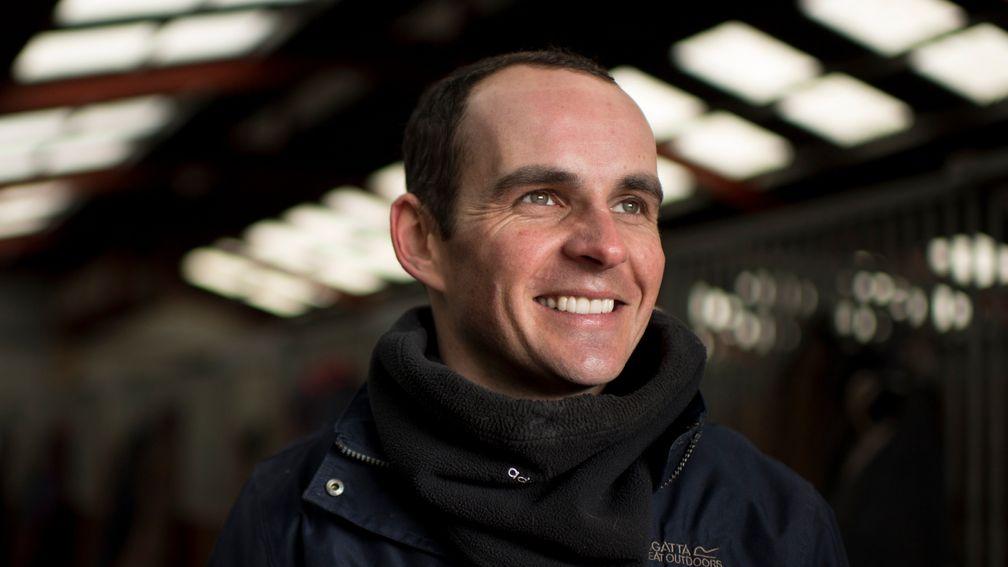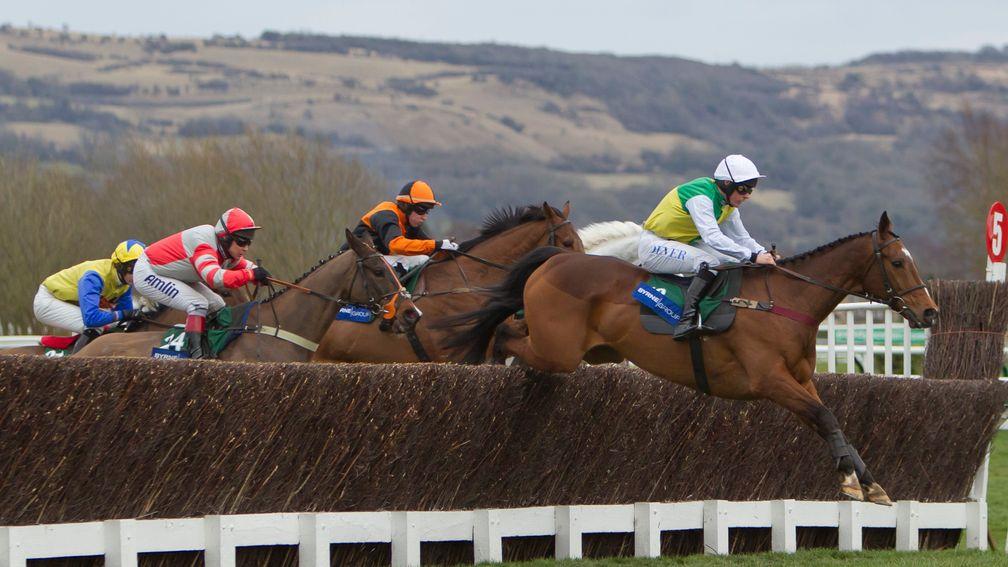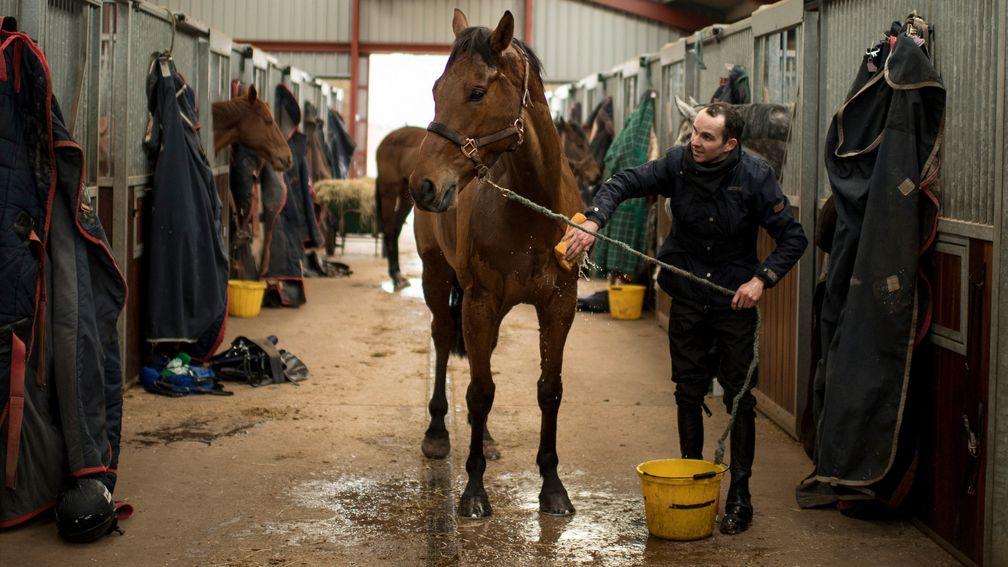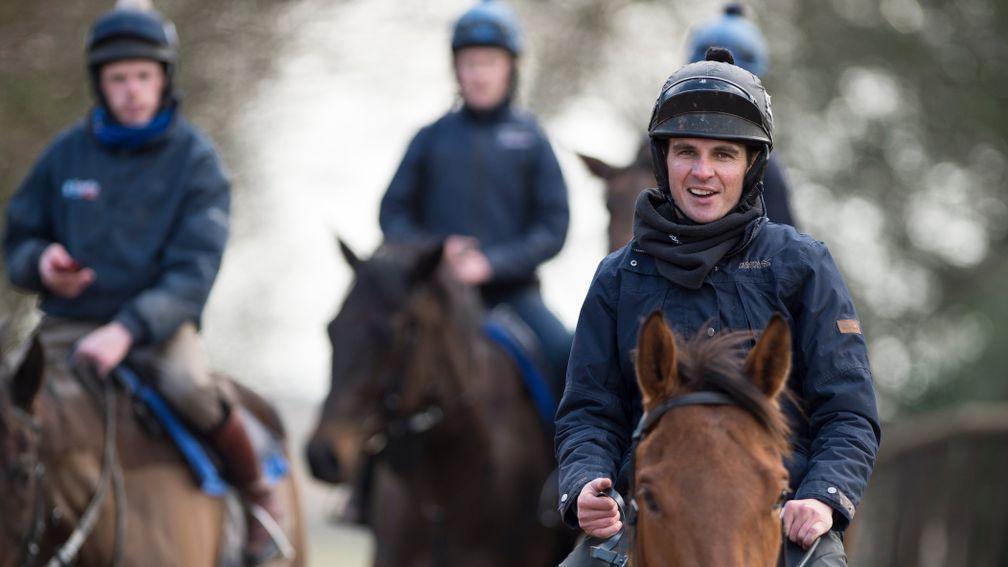- More
Liam Treadwell: why a festival victory meant so much despite the National fame
In a 2013 interview the rider talks about post-Aintree ups and downs in his life

Published in the Racing Post on March 26, 2013
For a man who won the Grand National on his first attempt at the race four years ago, riding a winner at the Cheltenham Festival should have been something of a natural progression. In Liam Treadwell’s case it has been anything but.
It seems too absurd for words, but the fact is Treadwell came close to throwing in the towel last summer. By then he’d been reduced to mucking out at Ed de Giles’s yard, a chore that was relieved by the occasional spare ride.
He’d returned to the sort of life he thought he’d left far behind – and the bills were stacked up almost as high as Becher’s Brook, which he’d effortlessly cleared en route to victory at Aintree in 2009.
He didn’t need to see the evidence on his tax return to know he wasn’t cutting it. The income generated by a paltry nine winners in the 2011-12 season couldn’t meet the mortgage on the house he’d bought with the proceeds from Mon Mome’s unexpected triumph.
His fiancee, Emily, had remained just that as Treadwell confronted the harsh truth. Last year his annual profit weighed in at £15,000. He couldn’t afford to take time out last summer after his links with Nick Gifford’s stable ran their course. For all money he seemed destined for the anonymity of a stable lad’s life.
“That’s why winning at the festival meant so much,” Treadwell, 27, reflects. “It is every jockey’s dream to win the National but coming up that Cheltenham hill meant more to me after all the ups and downs I’d been through. It was extra-special.”
Carrickboy was his conveyance. He is trained, like Mon Mome, by Venetia Williams and his front-running triumph in the Byrne Group Plate cemented a transformation in Treadwell’s fortunes in a way that saw history repeat itself.

It was Williams who gave Treadwell the chance to resurrect his career. As last summer neared its end she rang with the offer to ride out most mornings. Race rides were not promised; they would have to be earned.
Treadwell had to make the most of limited opportunities behind Williams’ stable jockey Aidan Coleman. And when Treadwell retraces the route by which he emerged from the doldrums, there will be a large circle of ink around January 5.
On that day Coleman went to Sandown for the winning ride aboard Katenko. Opportunity thus knocked for Treadwell – he ventured to Chepstow to partner the enigmatic Carrickboy, who duly obliged under a forceful ride.
Coleman was back aboard Carrickboy for his next run at Wincanton when the combination pulled up. So when Coleman – who turned down the ride on Mon Mome in favour of stablemate Stan in the 2009 National – had to choose between two Williams-trained runners in the Byrne Group Plate, he overlooked Carrickboy in favour of Kapga De Cerisy. Treadwell was again summoned and conjured up an unlikely triumph at 50-1.
“It definitely helped that I’d ridden the horse at Chepstow,” Treadwell says. “Venetia wanted me to make the running at Cheltenham and in that situation it is always good to know you’re riding a horse who will wear his heart on his sleeve for you.
“I couldn’t have had a better ride. He really travelled and jumped from fence to fence. As we turned for home I was trying to wind the horse up without getting to the bottom of him. I’d gone too soon on a horse in the same race a few years earlier and got beat.”
That horse was Ping Pong Sivola, another trained by Williams and whom Treadwell kicked into a clear lead after the fourth-last – only to be run down by 33-1 stablemate Something Wells.
“I learned a lesson that day,” Treadwell says. “This time, when I was coming down the hill I had that ride in the back of my mind; I tried to keep something back. When Carrickboy got to the last he had enough left in him to throw in a brilliant jump. I think that made the difference.
“Fortunately it was my last ride of the day and I had the next day off, so I was able to take it all in,” he continues. “I have watched the replay many more times than when I won the National.
“I’d had some good years with Nick [Gifford] when he was very supportive of me, but for some reason it stopped working. I just wasn’t riding winners for him so we went our separate ways.
“I’d had some injuries, which always makes things difficult, but I learned an awful lot from the last few years. The most important lesson was that you must never rest on your laurels.”

The fall from National-winning jockey to glorified stable lad is especially steep. You travel from being the toast of the nation to plain toast
– discarded and washed up, services no longer required, only memories to sustain you. If Treadwell had no mortgage obligations he might well have drawn stumps; instead he came to terms with it.
“With full respect to those who do it every day, I wasn’t proud to have to go back to the grassroots and I didn’t want to broadcast the fact,” he says.
“It took a bit of getting my head round it, to be honest. I didn’t enjoy it at first but I got used to it. I realised I had to bite the bullet and in the end I was just happy to have the work.”
Treadwell maintains his predicament wasn’t unusual since several of his colleagues are in the same financially holed boat. Yet none had won the National; none had won the race guaranteed to disperse television images to 600 million viewers worldwide. It even won him a place among the famous alumni of Angmering School in Sussex, where he was educated and where his parents worked at John Dunlop’s stables.

However, that Grand National triumph did bring some relief from last summer’s travails. He was in demand in the Czech Republic, where Grand National-winning jockeys are revered and where he was given a warm reception on each of his four visits – the last of them to ride in the Velka Pardubicka. It also offered him a shard of light at the end of a long tunnel.
Truth be told, Treadwell is not that keen to dwell on his summer of discontent. He does so as a courtesy even though he feels it is discourteous to colleagues struggling to make ends meet. It is as if he is embarrassed to have been obliged to confront a predicament that seemed so unlikely after that momentous day at Aintree.
“There are many in a worse place than I was,” he says. “Yes, it was a bit demoralising, but I never sat back and wondered why it was happening to me. I still counted myself lucky to have won the National.”
Treadwell had one further Grand National experience the following year aboard Nozic, who unseated him at the Chair. Needless to say, he craves another chance – although barring any late developments, it won’t be this year.
But that can wait. With 26 winners to date this season, Treadwell stands four short of the personal best he posted in 2006-07.
“Thanks to Venetia this has been a great year for me,” he says. “Winning at Cheltenham has topped it off. Now I can think about where the next winner might come from, rather than the next ride. That makes a big difference.”
And there’s one legacy of winning the National he will keep forever – his teeth. What were once gently mocked are now in pristine shape thanks to a benevolent dental company keen to surf the wave inadvertently set in motion by Clare Balding’s post-race interview on BBC television.
“It was amazing how that whole thing blew up out of nothing,” Treadwell says. “I only paid a small amount towards getting my teeth fixed and, to be honest, Clare did me a big favour. I can’t thank her enough. I just hope I don’t knock them out in a fall.”
More RP Classics:
Ryan Moore: a fascinating insight into the mind of one of the world's greatest
Pat Smullen: It wasn't all about coming back to ride horses – it was just about coming back
Kieren Fallon: I never got a buzz out of riding; I saw it as part of my job
Published on inObituaries
Last updated
- Alastair Down: a master conjuror of words and a cherished advocate for racing
- Mark Bradstock: the small-scale trainer who defied the odds to win jump racing's ultimate prize
- Grace, charm, style and knowledge - vibrant Maureen Mullins provided the DNA for Irish racing
- An irrepressible character with a ready wit: Alan Sweetman reflects on the life of Tommy Kinane
- Edward Hide: a supreme tactical judge with an unblemished record of integrity and honesty
- Alastair Down: a master conjuror of words and a cherished advocate for racing
- Mark Bradstock: the small-scale trainer who defied the odds to win jump racing's ultimate prize
- Grace, charm, style and knowledge - vibrant Maureen Mullins provided the DNA for Irish racing
- An irrepressible character with a ready wit: Alan Sweetman reflects on the life of Tommy Kinane
- Edward Hide: a supreme tactical judge with an unblemished record of integrity and honesty